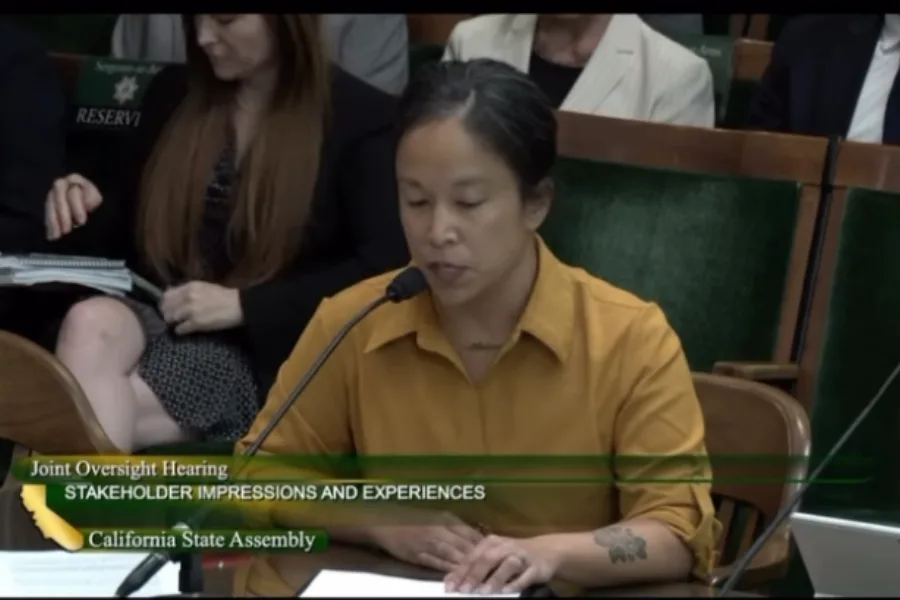CFA Leader Voices Concerns Over CSU AI Implementation at Oversight Hearing
CFA members have been raising concerns since the Chancellor’s Office first announced in February 2025 that the CSU will become the first Artificial Intelligence (AI)-empowered university system.
Less than a month after the announcement, we filed an unfair practice charge against CSU management for their failure to meet and confer with faculty over the impacts of the initiative.

On August 26, California Assemblymembers met in a joint oversight hearing to discuss the ethical use of AI in the university. The discussion included AI’s use in the classroom and the importance of AI literacy, privacy issues, equity, access, algorithmic bias, surveillance, and its impact on academic research.
Assemblymember Rebecca Bauer-Kahan, chair of the Privacy and Consumer Protection Committee, opened the discussion by expressing what the function of AI was intended for. She explained the importance of safeguarding students while they make significant transitions in their academic lives.
“As we take people’s children out of their homes—maybe for the first time—and we become responsible for them in an academic settings, we—the state of California—have got to make sure the tools that are put into their hands from our institutions are safe, that they are not sycophantic, that they are not addictive, that [students] are engaging with them in a way that will protect their mental health and allow them to unlock their educational potential. All of these things need to be central in our conversations around this,” said Bauer-Kahan.
During the hearing, Bauer-Kahan noted that while management’s presentation appeared well-prepared, the policies themselves lacked sufficient consideration. Once concerns were raised, it became apparent that there was a lack of forethought.
Elaine Villanueva Bernal, CFA Associate Vice President of Lecturers, South, and CSU Long Beach lecturer offered their testimony to the lived experiences that many faculty share regarding the threats that AI poses to our education system, data privacy, intellectual property, academic freedom, and environmental sustainability.
You can read Bernal’s full testimony here. Below is a snippet of their testimony highlighting key demands from CFA members. With regard to the AI-initiative, we are urging CSU leadership to:
- Consult faculty and staff first.
When AI changes how we teach, grade, or advise, it changes our working conditions. CSU must meet and confer with our union, as the law requires.
- Provide funded, optional training at scale.
If faculty are to integrate AI thoughtfully, they need time and resources: stipends, release time, professional development. Not unpaid labor.
- Keep humans at the center.
Students come to CSU for mentorship, guidance, and care. AI can supplement but must never replace this.
- Protect privacy and academic freedom.
No faculty materials should be uploaded into corporate systems without consent. No student data should be mined or sold. Protections should meet the standards of the General Data Protection Regulation (GDPR) in Europe and California’s own Consumer Privacy Act (CCPA).
- Require equity and bias audits.
Independent audits must be mandatory before CSU deploys any AI tool. Communities most at risk are the very students CSU is meant to serve: Black students, Indigenous students, Latinx and immigrant students, queer and trans students, and students with disabilities.
- Mandate transparency.
If CSU signs contracts with tech companies, those contracts must be public.
- Tie AI budgets to human support.
Every dollar spent on AI must be matched by investments in human capacity: faculty hiring, advising, counseling, student support.
- Ensure budget transparency.
Legislators, faculty, and students must see exactly how AI dollars are being spent.
Join California Faculty Association
Join thousands of instructional faculty, librarians, counselors, and coaches to protect academic freedom, faculty rights, safe workplaces, higher education, student learning, and fight for racial and social justice.